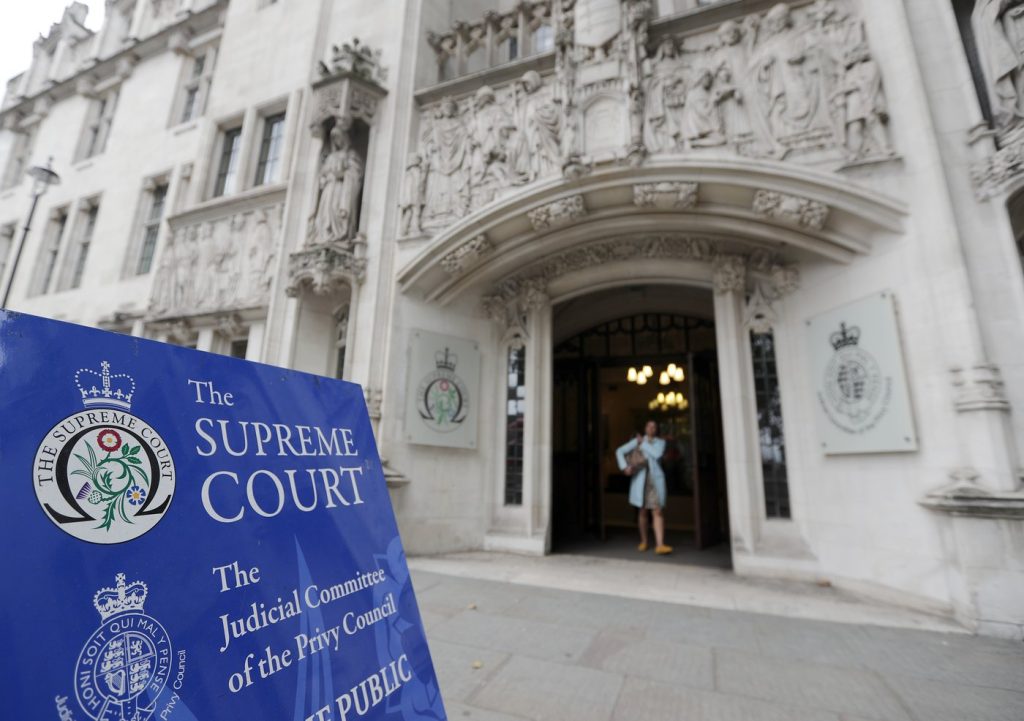LONDON (AP) - The U.K. Supreme Court is set to make a pivotal ruling on Wednesday in a significant legal case concerning the definition of a woman. The case has emerged from a long-standing dispute between a women's rights organization, For Women Scotland (FWS), and the Scottish government. The Supreme Court's decision could have far-reaching implications for sex-based rights throughout the United Kingdom, particularly affecting single-sex services such as toilets and hospital wards.
The crux of this legal challenge centers around a 2018 law that was enacted by the Scottish Parliament, which mandated that there must be a 50% representation of women on the boards of Scottish public bodies. This law controversially included transgender women in its definition of women. As a result, the women’s rights group FWS successfully contested this law, asserting that this new definition of "woman" exceeded the legislative authority of the Scottish Parliament.
Following this ruling, Scottish officials issued guidance that confirmed the inclusion of transgender women, who possess a gender recognition certificate, as women under the law. FWS has sought to overturn this guidance, arguing that it complicates the understanding of sex and representation in public life.
Trina Budge, the director of FWS, expressed that not adhering to the traditional interpretation of "sex" undermines the legislative intent. She warned that the boards could theoretically achieve the 50% female representation goal with an equal split between biological men and transgender women, which challenges the very essence of the law's aim.
The legal challenge was dismissed by a lower court in 2022; however, the Supreme Court later granted FWS permission to appeal the decision. Central to the case is the question of how "sex" is defined under the Equality Act. Aidan O’Neill, representing FWS, argued before the Supreme Court judges that the term "sex" should refer strictly to biological sex - a distinction based on the physical realities associated with being male or female from conception onward. He insisted that biological sex is “an immutable biological state” and should be understood in “ordinary, everyday language.”
Support for FWS includes notable figures such as author J.K. Rowling, who has publicly articulated her concerns regarding the potential conflicts between the rights of transgender women and those of biologically born females. Rowling's financial contributions to the group's campaigns, reportedly amounting to tens of thousands of pounds, underscore her commitment to the cause.
On the opposing side, human rights organizations like Amnesty International have voiced critical concerns about the implications of the case for transgender rights. They contend that excluding transgender individuals from protections against sex discrimination is a violation of human rights standards. Amnesty submitted a brief to the Supreme Court emphasizing that such exclusion is not justified and that a comprehensive ban on trans women accessing single-sex services is disproportionate to any legitimate aim that might be pursued.
This hearing reflects a broader societal debate taking place in the U.K. and beyond, as various groups continue to grapple with the complexities of gender identity and women's rights. The Supreme Court's ruling will be pivotal, not just for the specific legal stakeholders involved, but for the wider implications it holds for the understanding of gender and rights in contemporary society.










